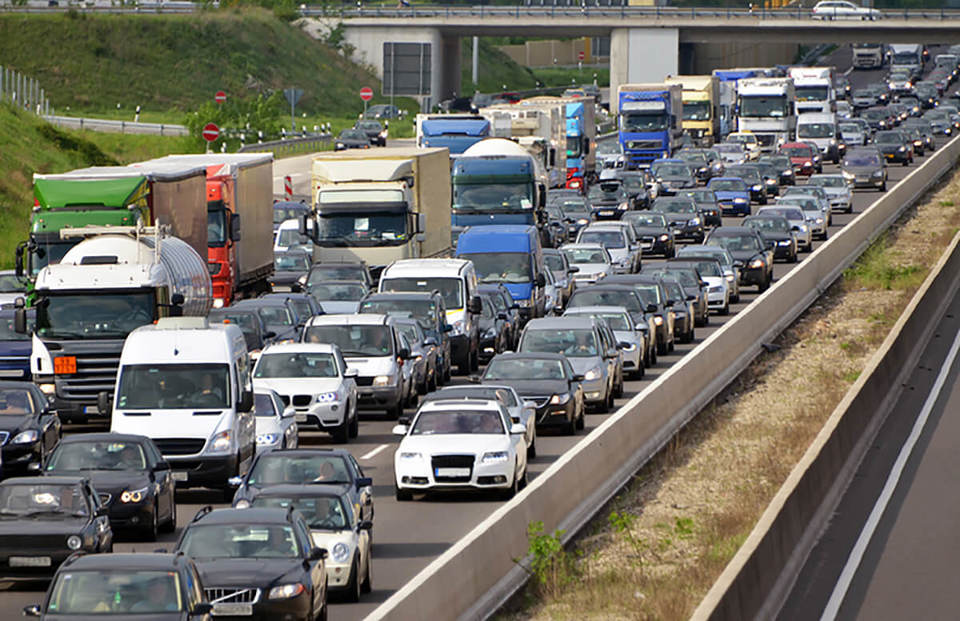Four in 10 small and medium sized businesses are unaware clean air zones will start in towns and cities across the UK as early as next year, a survey from the British Vehicle Rental and Leasing Association (BVRLA) suggests.
It reveals that more than a third are unaware that air quality restrictions are likely to involve charges for all but the most modern and least polluting diesel vehicles.
In some cities, these charges will be as much as £100 per day for an HGV and £12.50 per day for other vehicles such as taxis and vans.
Leeds, Derby, Nottingham, Southampton and Birmingham have been ordered by the Government to bring in operational clean air zones by 2020. An additional 23 local authorities have been earmarked for clean air zone implementation and a further 33 are considering what approach to take as part of their strategy to improve air quality.
Meanwhile, London launches its 24/7 Ultra-Low Emission Zone (ULEZ) in April 2019, replacing the current T-Charge operating in the Congestion Zone area. London Mayor Sadiq Khan has also announced plans to extend the ULEZ to an area 18-times larger than the original zone by October 25, 2021.
BVRLA chief executive Gerry Keaney said: “Unless more is done to publicise the impact of these various clean air zones and mitigate their impact, hundreds of thousands of businesses across the country will be hit with a new regional road transport tax that will bring additional cost and confusion, at a time when firms are already dealing with Brexit-related economic uncertainty.
“We are particularly concerned about truck operators, who are more likely to be impacted by these zones, face the biggest charges and will struggle to find and afford CAZ-compliant vehicles.”
In addition to calling for more publicity around clean air zones and what they will mean, the BVRLA is also encouraging national and local policymakers to introduce a range of measures that will help business fleets make the transition to cleaner vehicles and encourage the use of more sustainable modes of transport.
These include ensuring that local authorities adhere to common clean air zone standards in terms of hours of operation, signage, communications and any exemptions. As many businesses operate within multiple cities and regions on a daily basis it is vital that a standardised approach is developed to avoid confusion and improve the ease of compliance for drivers, said the BVRLA.
It is also calling for ‘phased charging’ to be introduced for trucks so that the most polluting vehicles pay a higher fee to enter the clean air zone. As currently envisaged, all trucks other than those meeting the very latest Euro VI emissions standard will pay the same fee. Introducing a graduated charge would encourage operators that cannot afford to buy a brand-new fleet to buy newer, cleaner used vehicles, the BVRLA argues.
To see where air quality restrictions are being planned, view our clean air zone information page, with our interactive map.
BVRLA commissioned YouGov to poll British SMEs to ask questions about clean air zones.
Question 1: As a result of Government legislation, certain local authorities are planning to introduce clean air zones (CAZs) in the UK. CAZs are likely to involve charging users of vehicles that do not conform to the most recent emission standards to enter certain city zones. Charges to enter CAZs for HGVs/LGVs could be up to £100 per entry, and charges for cars or vans up to £12.50 per entry.
Before taking this survey, were you aware of the following?
As a result of Government legislation, certain local authorities are planning to introduce CAZs in the UK.
Answer: Aware (55%) / not aware (40%) / not sure (4%)
- North West: Aware (48%) / not aware (46%) / not sure (7%)
- Yorkshire and the Humber: Aware (50%) / not aware (45%) / not sure (6%)
- West Midlands: Aware (49%) / not aware (47%) not sure (5%)
- East & North East England: Aware (54%) / not aware (44%) not sure (2%)
- London: Aware (61%) / not aware (35%) / not sure (4%)
- South East: Aware (65%) / not aware (33%) / not sure (1%)
- South West: Aware (42%) / not aware (53%) / not sure (5%)
Question 2: Are you aware that CAZs are likely to involve charging users of vehicles that do not comply with CAZ emission standards to enter certain city zones?
Answer: Aware (57%) / not aware (38%%) / not sure (5%)
- North West: Aware (49%) / not aware (45%) / not sure (6%)
- Yorkshire and the Humber: Aware (56%) / not aware (36%) / not sure (7%)
- Midlands: Aware (51%) / not aware (44%) not sure (5%)
- East & North East England: Aware (57%) / not aware (41%) not sure (4%)
- London: Aware (69%) / not aware (27%) / not sure (4%)
- South East: Aware (65%) / not aware (32%) / not sure (2%)
- South West: Aware (42%) / not aware (51%) / not sure (6%)
Any regional percentages calculated on bases fewer than 50 respondents are not reported in the breakdown as they do not represent a wide-enough cross-section of the target population to be considered statistically reliable.


















Login to comment
Comments
No comments have been made yet.